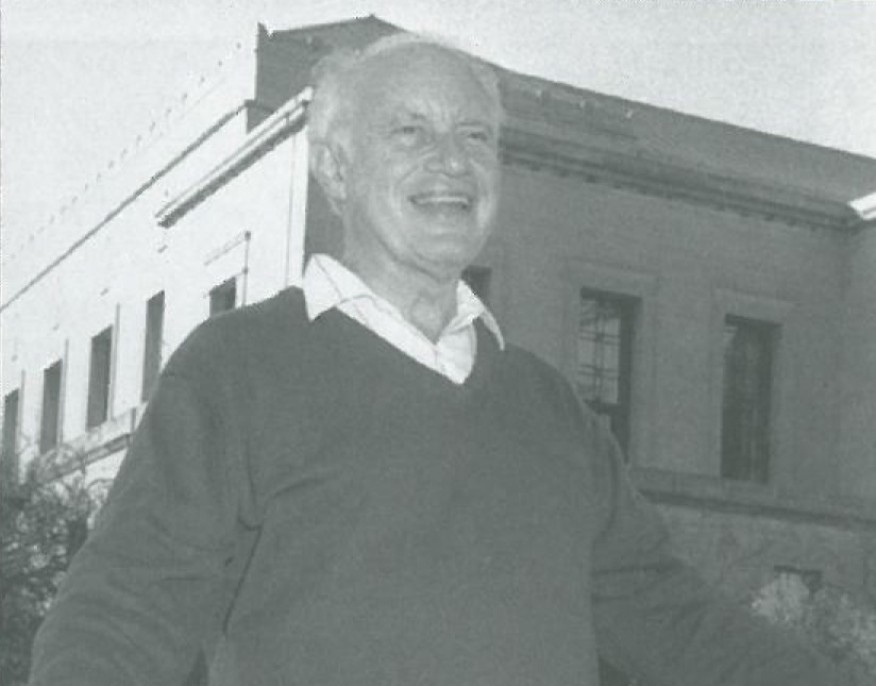When Charles Garvin was considering joining the University of Michigan School of Social Work faculty in 1965, he never thought that he would be here for thirty-five years. But that's precisely how things turned out for him. "I came to work here because it had, among all schools of social work in the country, some of the most exciting, innovative ideas for revolutionizing social work practice. It was one of the most research-based schools in the country and had a strong interest in group work. People don't usually go
somewhere and say 'I'm going to stay there for thirty-five years', but it continued to be a good and exciting place."
In 2001, Garvin retired from the School of Social Work faculty. His career is characterized by great breadth, but much of his scholarly
work is related to group work. When he joined the School in 1965, UM was a leader in the development and promotion of group work. Robert Vinter had been brought in to spearhead this effort and established an impressive array of people researching group work in various settings.
"I wasn't brought on, I don't think, for the purpose of developing group work for a particular setting, but being part of the array of people continuing the development of theory of group work, and of research and knowledge foundations for group work," Garvin said. "Through the years, I worked on a broad array of research and writing to expand the knowledge of theoretical and research-based group work."
Over the course of his career, he published more than eighty books, articles, and reviews, including widely used textbooks such as Contemporary Group Work, first published in 1981 and currently in its third edition. He is also coauthor of Interpersonal Practice in Social Work (with Brett Seabury); and Social Work in Contemporary Society (with John Tropman).
Publication of his scholarly efforts has not declined in his retirement-with Professors Lorraine Gutierrez and Maeda Galinsky, he
intends to publish a comprehensive book on group work sometime in late 2003 (Guilford). He also has a forthcoming book on generalist practice with Columbia University Press (anticipated Fall2002). He is co-editor of the Sage Publications journal Small Group Research, and is co-editor (with Armand Lauffer) of two book series from Sage.
Garvin continues to provide distinguished and tireless leadership in national social work organizations. As the first chair of the Association for the Advancement of Social Work with Groups after it became a membership association, he is a life member of its board of directors. During his career, he served on the School's Executive Committee, and chaired the curriculum committee (the first non-Associate Dean to do so) during two periods of significant change, where he focused on strengthening the cur~iculum through
the use of social sciences and research as its bases. He also chaired a longterm strategic planning committee in the School, culminating in a formal 1990 report delineating the School's mission that continues to be cited. Garvin was the first chair of the Social Treatment program, the precursor to Interpersonal Practice (IP). He was also the second director of IP (following Ann Hartman).
Garvin was the director of the Joint Doctoral Program in Social Work and Social Science for seven years, and served as chair of the
national Group of the Advancement of Doctoral Education in Social Work (GADE) for two years. He also played a leadership role in the School's recent reaccredidation effort, and wrote a significant portion of the substantive content on curriculum in the report.
He was a founder of the Symposium for the Empirical Foundations of Group Work, which was designed to meet the needs of those who carry out or make use of research on group work practice, as well as those who use data to make clinical decisions in groups.
Garvin continues to research group work, including work on a grant from the W.K. Kellogg Foundation's Global Program on Youth called Approaches to Reduction of Conflict Among Youth Groups. He is working with Professors Beth Glover Reed, Lorraine Gutierrez, Robert Ortega, and Larry Gant on a project around women who abuse drugs and have histories of personal abuse.
Currently, Garvin is developing a proposal for a family approach to get treatment-averse alcoholics into treatment; the work is an extension of Edwin Thomas's earlier work with people who suffer from depression or anxiety and alcoholism.
While he no longer has teaching responsibilities, Garvin's commitment to social work generally, and group work in particular, has not
decreased in retirement. "I think that if people were talking about me, they would think of me as somewhat of a pioneer in group work-not like Jane Addams, but a generation or two down the line. I've been around a long time; I got my masters in social work fifty years ago. That's a long time." And, clearly, society is better for the time and energies he has dedicated to the profession.
-Terri D. Torkko
